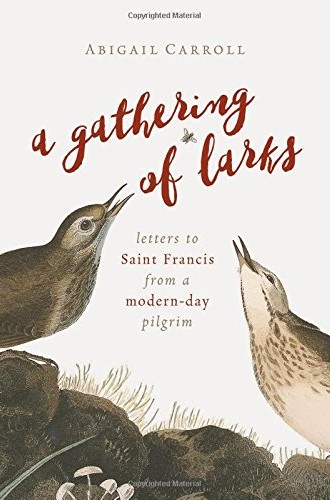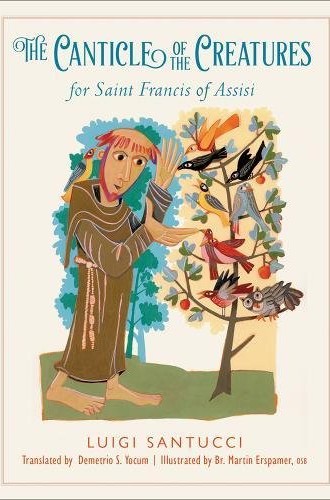St. Francis, holy fool
What the countercultural barefoot preacher means for Christians today
The number of books about St. Francis of Assisi that’ve landed on my desk lately is exceeded only slightly by the number of books about Pope Francis. I have yet to see a book that is equally devoted to the two Francises, but I expect one will be published any day. In the meantime, in honor of the beloved saint whose feast day we celebrate today, here’s a roundup of the most interesting St. Francis books on my shelf.
Abigail Carroll subtitles her book “letters to St. Francis from a modern-day pilgrim” but the letters are in the form of poems. The poems beautifully interrogate the world in which we live, with all its faults and comforts—which, Carroll shows, is not so different from the world in which Francis lived. She addresses Francis with a variety of titles and names, highlighting the multiple resonances his legacy holds for Christians today. “Dear Barefoot friend,” one poem begins, “I am pressing my toes in soil / and morning grass wet with shade.” But to go barefoot is a privilege for the modern-day poet, and she recognizes that it was a hardship for the saint. “Did stones and roots not make / you bleed?” she asks before signing off as “Shoe-clad.” Another poem begins by asking Francis if he has met Job in the afterlife: “When / sleep was a lie, relief a dream, what well // did he draw his patience from?” The signature is this: “In need of hope.”
“Francis’s hand was small and smooth as that of a child,” recalls the cicada in Luigi Santucci’s collection of imaginative reflections from the animals to whom the saint preached, which was originally published in Italian in 1981. Now available in English and vividly illustrated by Brother Martin Erspamer, the book is a gentle reminder that the relationship between Francis and those he served (whether animal or human) was not only one-sided. The cicada continues: “Francis—his hand had the scent of mulberry leaves and chestnut bark. His voice was so lovely . . . when he told me to sing—to sing with my joy a praise of the Creator. After all, it is what my kind has been doing for millennia.” The nightingale expresses confidence that “like you, in some mysterious way, we will live forever; and the eternal paradise that awaits you we will share one day together.” Santucci reminds us that those to whom we preach also have voices that are worth listening to.
Jon Sweeney explores the meaning of holy foolishness in relation to the life of Francis and the prayer lives of his readers. “The holy fool can see more, can understand more, can grasp her connection to a world that is endless, but only by accepting its mystery.” Sweeney offers a daily office for those who are willing to “seek out humiliating moments as a kind of exercise,” with prayers that embody something like a theology of the cross. We engage in these prayers not for the sake of foolishness itself but because acting in such a way is “not just a way of discipleship but an act of protest.” It shocks us out of the values of the world, freeing us to follow Christ.
Sweeney’s book reminds me of a conversation I once had with a colleague while we were planning a worship service for St. Francis day. “I can never remember how to spell Assisi,” I complained, and Dan, the church’s cantor, replied enigmatically: “ass is I.” I must have looked confused, because he said it again. This time he shaped his hands like donkey ears as he said ass, pronounced is with comedic emphasis, and pointed to himself as he said I. “That’s how you spell Assisi,” he continued, “and that is exactly what St. Francis would want me to remember. I’m an ass. We’re all asses, just like the ones he preached to.” I’ve never misspelled Assisi since that moment, nor have I forgotten that I am little better than a donkey—and still, I’m worthy of hearing about God’s grace.









